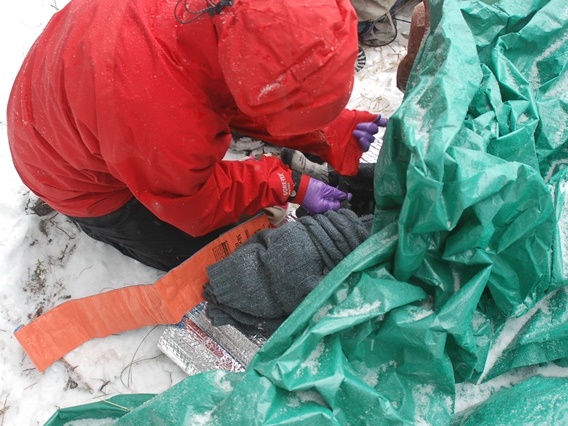SOLO Wilderness First Responder (WFR) with Train NEK

Join Train NEK in beautiful Vermont to earn your SOLO Wilderness First Responder this year!
- Tuesday-Tuesday, August 18-25, 2020, 9a-6p, Peacham
- Monday-Monday, October 5-12, 2020, 9a-6p, Peacham
- Monday-Monday, January 11-18, 2021, 9a-6p, Peacham

TWO OPTIONS FOR PAYMENT
SAVE MONEY! MAIL A NOTE WITH COURSE TITLE, DATES, STUDENT NAME, EMAIL ADDRESS AND PHONE, AND A CHECK FOR $600 TO TRAIN NEK, PO BOX 132, PEACHAM, VT 05862 (we’ll email you confirmation as soon as your check is received)
OR
Pay by credit card online (additional Eventbrite fee applies) by clicking on your desired course below.
Eventbrite link for Tuesday, August 18 to Tuesday, August 25, 2020
Eventbrite link for Monday, October 5 to Monday, October 12, 2020
Eventbrite link for Monday, January 11 to Monday, January 18, 2020
What is Taught? The SOLO Wilderness First Responder (WFR) takes a comprehensive and in-depth look at the standards and skills critical to Assessment and Treatment of Musculoskeletal Injuries, Environmental Emergencies, Soft Tissue Injuries, and Medical Emergencies. We also cover Packaging and Transporting Patients, Long-Term Patient Care, Risk Management, and Survival Skills. Topics are covered far more extensively than can be done in the WFA, with additional topics such as CPR included, and more time for building muscle memory through hands-on practice.
Who is This For? The WFR is ideal for anyone wanting a high level of wilderness medical training for extended personal backcountry trips or expeditions, or anyone working in a position of leadership in an outdoor setting. Generally taught over eight or nine days, this 72-hour course is recognized as the industry standard for outdoor professionals including river and mountain guides, search and rescue personnel, outdoor trip leaders, and others who expect to end up in remote settings with limited resources.
What is Included? WFR tuition of $600 includes instruction, training materials, and certification fees, including SOLO Adult, Child and Infant CPR certification exceeding current AHA/ILCOR guidelines. Certification lasts for three years. You recertify by either taking a two-day SOLO WFR Refresher (preferred), or by taking a SOLO WFA course with some additional studying outside of class.
What Should I Bring? WFR students are asked to bring clothing suitable for getting dirty and appropriate to being active outside much of the day (you’ll be rolling around on the ground pretending to be injured, and kneeling next to mock patients). You should also bring items such as a water bottle, a headlamp, a day pack, and additional outdoor layers to use for building splints. Meals and lodging are not included. A complete packing list and directions are sent to students upon registration.
EDUCATIONAL/FUNCTIONAL JOB REQUIREMENTS FOR WILDERNESS MEDICAL STUDENTS AND PROVIDERS Based on the Department of Transportation’s First Responder curriculum, the Wilderness First Responder is a job-training program which integrates wilderness and medical training and leads to certification. As such, candidates must meet all First Responder functional job requirements in order to become certified.
DOES THE WFR COUNT AS CONTINUING EDUCATION? The WFR typically counts toward continuing education credits, although it may depend on what certification you have. Street EMTs who take the WFR course may become certified as Wilderness EMTs.